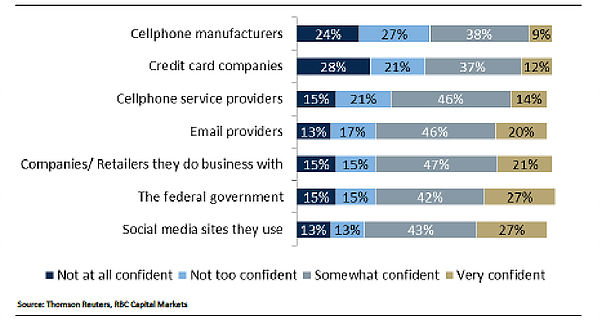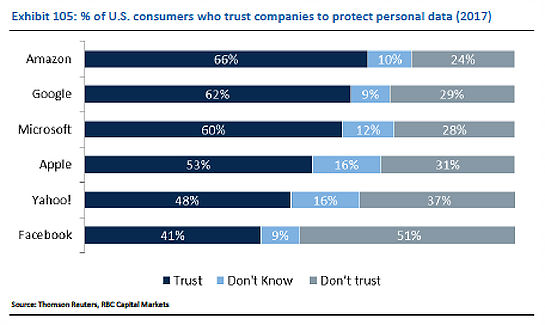Political and regulatory outcomes will likely play a key role in defining who’ll influence the ‘greater good’ collective action will bring about.
Even before the recent slew of high-profile data breaches, 50% of Americans didn’t trust the government or social media networks with their data. But attitudes differ significantly around the world. Where 85% of Germans welcomed the EU’s General Data Protection Regulation (GDPR), only 29% of Americans feel privacy standards should be so stringent.
Be that as it may, seeing as all companies doing business in the EU have to implement GDPR, no matter where they’re based, it’ll probably set the standard. Case in point, Facebook has recently said it would start applying GDPR in the US too.
A study by Pegasystems found 82% of European consumers plan to view, limit, or delete the information businesses have about them. 90% also want direct control over how companies use their data. And 89% want to see what data companies store on them.
As awareness of what GDPR is and what it allows consumers to do increases, it's likely it’ll give rise to widespread consumer action. The endgame could be a world in which consumers, not companies or government regulators, create and control data.
Exhibit 104: %confidence of US adults in companies to protect their personal data, by type (2017)




Collective Action: Up close
The future will be determined by those who are willing to reinvest, adapt and turn future threats into opportunities.